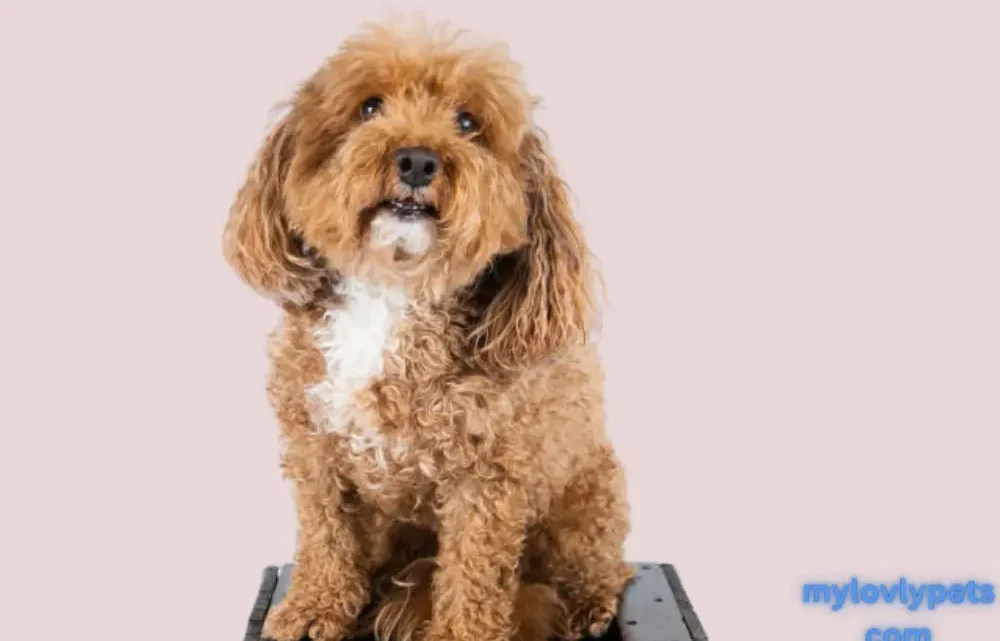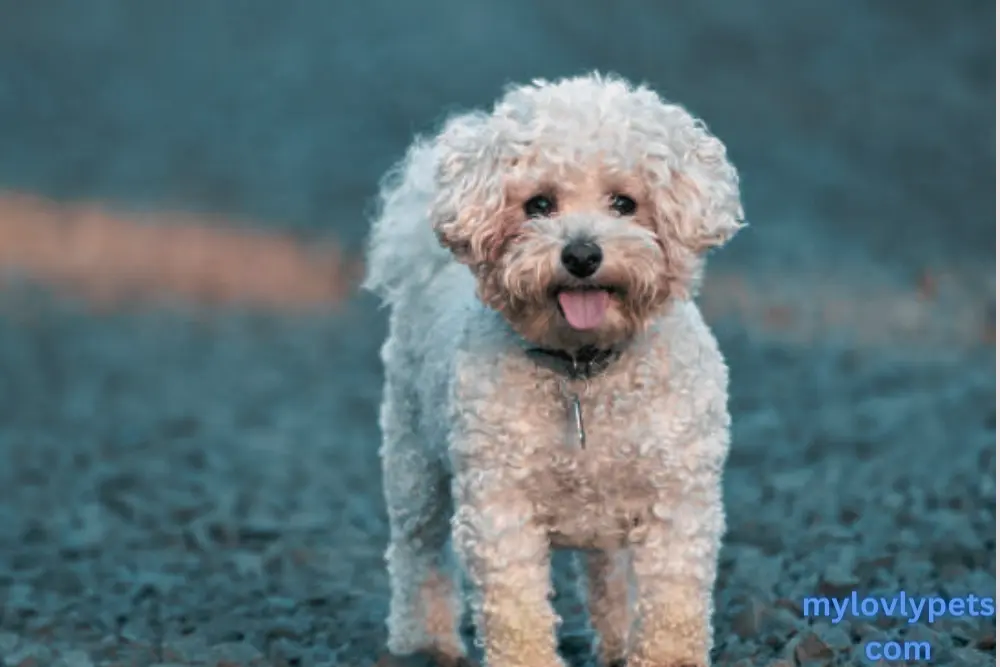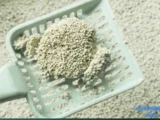
Bichapoo: The Adorable Breed with a Unique Blend
Imagine a world where your furry companion is not just a pet but also a designer breed – smart, cute, and cuddly. Designer dog breeds are all the rage today, and one delightful example is the Bichapoo.
In recent years, these adorable dogs have become the talk of the town. Why? Well, they’re a mix of two incredible breeds, the Bichon Frise and the Poodle, making them both lovable and hypoallergenic.
But what’s the story behind this charming blend of breeds? The Bichapoo’s origins are a bit of a mystery, with hints pointing to the 1990s and even Melbourne, Australia. This is a breed that’s not just about looks; it’s about combining the best traits of two fantastic dogs. The result? An intelligent and affectionate companion that’s winning hearts all over the world. Let’s explore the Bichapoo’s captivating world!
The Bichapoo’s Origin and History
The Bichapoo, a delightful mix of Bichon Frise and Poodle, has a rather mysterious origin. While its exact beginnings remain unclear, many believe this charming breed first emerged in the 1990s, with Melbourne, Australia as a potential cradle. Unlike more established Doodle breeds like the Goldendoodle and Labradoodle, the Bichapoo’s history lacks extensive documentation.
Despite its lack of historical records, the Bichapoo has gained recognition from various dog organizations, such as the Designer Breed Registry and the International Designer Canine Registry. These organizations acknowledge its status as a unique and sought-after designer dog.

The story of the Bichapoo’s creation revolves around the desire to combine the desirable traits of its parent breeds, the Bichon Frise and the Poodle. Bichon Frises are known for their loving yet clingy nature, while Poodles are cherished for their intelligence. Mixing these breeds was an attempt to soften some traits, like reducing the Bichon Frise’s clinginess and tempering the Poodle’s sensitivity.
Although not officially recognized by prominent dog clubs like the American Kennel Club (AKC), the Bichapoo boasts an intriguing lineage, with first-generation (F1) dogs inheriting a balanced 50% of the Poodle gene and 50% of the Bichon Frise gene. These dogs can vary in terms of their genes, with some leaning more toward one parent’s traits than the other.
Curiously, the Bichapoo is often not bred with fellow Bichapoo dogs, as this practice is thought to carry a higher risk of hereditary issues. Breeders are careful to avoid such unions to ensure the health and well-being of these adorable mixed-breed companions.
Bichapoo Pedigree and Unique Traits
The Bichapoo’s pedigree is quite unique because it’s a mix of two wonderful dog breeds: the Bichon Frise and the Poodle. When it comes to their genes, they inherit 50% from each parent, which makes them what we call an F1 generation. This balanced blend of Poodle and Bichon Frise genes gives them a combination of traits from both sides.
One interesting thing to note is that many breeders avoid breeding Bichapoos with other Bichapoos. Why? Well, they believe that it can lead to more genetic problems because it increases the chances of inheriting certain defects. So, mixing different breeds like Bichon Frise and Poodle helps soften or enhance certain traits.
The goal here is to create a dog that’s not too clingy, and also not overly delicate. Bichon Frises can be very attached to their owners, so mixing them with the Poodle helps create a more independent and less clingy buddy. On the flip side, Poodles are known for being sensitive, and when paired with Bichon Frise, that sensitivity might not stand out as much.
Appearance and Grooming of Bichpoo

The Bichapoo is a charming little dog that’s just the right size for cuddling. They usually weigh around 15 pounds or less when they’re fully grown. This makes them perfect for being a lapdog, which means they can sit on your lap and you can snuggle with them. If you like to take your furry friend with you when you go out, the Bichapoo’s small size makes it easy to do that.
One thing that’s fascinating about Bichapoos is their coat. These dogs come in all sorts of colors, but many of them are either cream or white. Some Bichapoos have black, chocolate, or apricot coats, so you have a range of choices. As they get older, some Bichapoos’ coat colors can change a bit. For instance, a puppy might have white spots on certain parts of their body, which become more noticeable as they grow older.
One of the most charming things about the Bichapoo is their teddy bear-like appearance. They have these cute black button eyes that make them look like little stuffed animals. Plus, their fur can be soft and fluffy. The Bichapoo’s coat might be a bit wavy, straight, or even woolly.
Many Bichapoos have that classic teddy bear cub look, but each one is unique. How they look depends on their family tree. If a Bichapoo has more Bichon Frise in their genes, they’ll look more like a Bichon. If it’s the other way around, with more Poodle genes, they’ll get more Poodle traits.
Taking care of a Bichapoo’s coat is important to keep them looking their best. They don’t shed a lot, which means you won’t find their hair all over your house. That’s great news for folks with allergies because less shedding means fewer allergens. But because their coat is special, it needs regular brushing to keep it tangle-free. You might also want to consider taking your Bichapoo to a professional groomer every couple of months. They can give your dog that cute teddy bear cut that many people love.
Bichapoos are not high-maintenance when it comes to grooming, but you should still be prepared to give them regular care to keep them looking and feeling their best. Their unique appearance and fluffy coats are a big part of what makes them so lovable.
Personality and Temperament of the Bichapoo
Loyalty and Friendliness: Bichapoos are known for being incredibly loyal to their human companions. They form deep bonds with their owners and are often described as loving and devoted. These little dogs are friendly and enjoy being part of the family. They’re likely to wag their tails and greet you with enthusiasm when you come home.
Intelligence and Trainability: Bichapoos are smart cookies. They inherit their intelligence from both parent breeds, the Bichon Frise and the Poodle. This means they can be quick learners. Training a Bichapoo is usually a breeze. They pick up commands and tricks with ease. This is a big plus if you’re looking for a trainable dog. They enjoy mental challenges, so it’s a good idea to engage them in activities that keep their minds active.
Need for Socialization: Bichapoos are social butterflies. They love interacting with people and other animals. However, if they become too attached to one person and aren’t properly socialized, they might become overly clingy. That’s why early socialization is crucial. It helps them feel comfortable around different people and animals, preventing them from becoming overly dependent on just one person.
Potential Behavioral Issues: If not given proper training and boundaries, Bichapoos can develop behavioral problems. They might become stubborn or even a little destructive. They can also bark or howl when they’re anxious or feel abandoned. This is their way of expressing their emotions. Therefore, it’s important to establish yourself as the leader of the pack and provide consistent training to avoid any undesirable behaviors.
Bichapoo Health and Common Concerns

When it comes to the health of Bichapoos, they have a few things working in their favor. One of the positives is their “hybrid vigor.” This means that, as a mixed breed, Bichapoos tend to have a longer lifespan compared to purebred dogs. They often live for 12 to 15 years, which is quite good.
However, like all dogs, Bichapoos can face some health issues. Here are a few common ones to be aware of:
- Allergies: Both of their parent breeds, the Bichon Frise and the Poodle, are somewhat prone to skin problems and allergies. If your Bichapoo starts itching or experiencing skin issues, it’s important to figure out the cause. It could be related to their food, the products you use on them, or irritants in their environment. In many cases, these issues can be managed with dietary changes and supplements like salmon oil and coconut oil, which help with itching and dryness.
- Hip Dysplasia: This is a condition where the hip joint doesn’t form properly, leading to pain and difficulty in movement. In some cases, it can even lead to arthritis. If your Bichapoo has hip dysplasia, it’s crucial to manage their weight and make sure they’re not carrying excess pounds, as this can stress their joints further.
- Patellar Luxation: This condition means the kneecap doesn’t sit in the right place. It can result in the kneecap sliding out of position. Contrary to what some might think, not all dogs with this issue need immediate surgery. In many cases, you can help your dog lead a normal life by maintaining a healthy weight.
Preventive care and regular check-ups with your veterinarian can go a long way in ensuring your Bichapoo stays healthy. Keeping an eye on these common concerns, providing a well-balanced diet, and ensuring they get enough exercise will help your furry friend live a happy and healthy life.
Bichapoo Price and What to Look for Before Buying
Bichapoo Price When it comes to the price of getting a Bichapoo, you might wonder how much it’ll cost. Well, it can vary, but on average, you can expect to pay somewhere between $700 to $1,000. That’s the price range. But there are a few things that can affect the price.
One key factor is where you get your Bichapoo from. It’s essential to find a reputable breeder. This is super important because there’s a difference between good breeders and not-so-good ones. You don’t want to support puppy mills or unethical breeders. A reliable breeder cares about the health and well-being of their puppies, and they’ll be happy to answer any questions you have. They might even provide health guarantees for their dogs.
When you’re dealing with a good breeder, they might even offer you some insights into your Bichapoo’s health. They might even recommend health tests, like checking your new buddy’s eyes, blood, or thyroid. This is to make sure your dog is healthy and happy.
Vaccination Records Speaking of health, before bringing your new Bichapoo home, you should make sure they’ve had their vaccinations. This is super important to protect your new buddy from diseases. One of the standard vaccines is a 5-in-1 shot, which guards against things like distemper, hepatitis, leptospirosis, parvovirus, and parainfluenza. In many places, there’s also a rabies vaccine required by law.
Health Guarantee Here’s another thing to consider before bringing your Bichapoo home. Some breeders might offer a health guarantee. This means they’re okay with you getting your dog checked to ensure they’re in good shape. Usually, you’ll have a few days to do this. It’s a way to give you peace of mind when you’re getting your new furry friend.
Microchipping Another thing to think about is microchipping. In some countries, it’s a requirement. It’s a way to identify your dog, just in case they get lost. It’s kind of like an ID for your pet, which is especially important if they ever wander off.
Taking Care of Your Bichapoo: Exercise and More
Your Bichapoo is a bundle of energy and affection, so it’s essential to understand how to keep them happy and healthy. In this section, we’ll delve into the exercise and care aspects that ensure your Bichapoo lives their best life.
1. Get Moving: Exercise Needs Bichapoos are energetic little creatures. They may be small, but they need their daily exercise fix. Plan for at least 30 minutes of active playtime or walks. You’ll soon notice how much they enjoy it. Play fetch, go for a jog, or just take a leisurely stroll – they’ll be thrilled.
2. Sharpen Their Mind: Mental Stimulation These furballs are not just physically active; they’re also sharp thinkers. Mental stimulation is vital for their well-being. Engage their minds with interactive toys, treat puzzles, and obedience training. They’ll love the challenge and the bonding time with you.
3. Adaptable Friends: Living Environments One fantastic thing about Bichapoos is their adaptability. Whether you live in a spacious house or a cozy apartment, they’ll be content. Just make sure they get enough exercise and love. They’re versatile and can thrive in various living conditions.
4. Loving But Attached: Separation Anxiety Bichapoos form strong bonds with their humans. While they’re incredibly affectionate, this attachment can sometimes lead to separation anxiety. If you need to leave them alone, consider gradual training and socialization to help them feel more at ease when you’re away.
Final Words
In conclusion, the Bichapoo, a delightful mix of Bichon Frise and Poodle, makes for an ideal family pet and intelligent companion. Their friendly, loyal nature and adaptability to various living environments make them great additions to households. However, owning a Bichapoo comes with the responsibility of proper grooming, exercise, and training. It’s essential to maintain their coats, ensure regular exercise, and provide obedience training to enjoy a happy, well-behaved pet.
For those considering a Bichapoo, it’s crucial to choose a reputable breeder, check vaccination records, and consider health guarantees. The cost of purchasing a Bichapoo varies, but quality and ethical breeding should always be a priority. Taking these steps will ensure a healthy, happy life for your Bichapoo companion.
If you’re interested in adopting a Bichapoo or have any questions about this wonderful breed, don’t hesitate to reach out to breeders, rescue organizations, or online communities to learn more and start your journey to welcoming a Bichapoo into your family.


